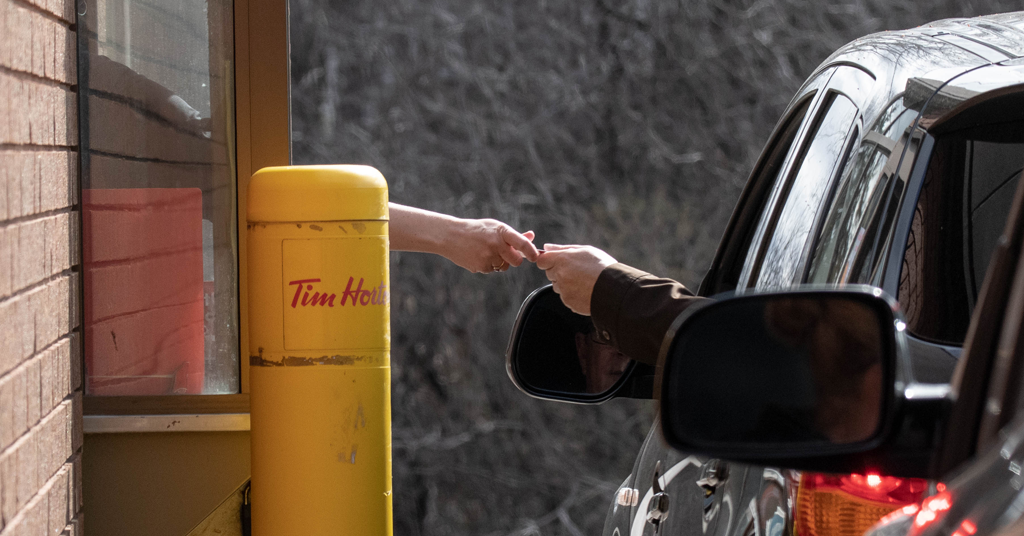
Saskatchewan Has the Lowest Minimum Wage in Canada. Doctors Say It’s Harming the Health of Workers.
Business groups are lobbying the Saskatchewan government to prevent Canada’s lowest minimum wage from increasing
As groups representing wealthy business interests lobby Saskatchewan’s government to prevent the lowest minimum wage in Canada from increasing, health experts say low wages are causing harm for low-wage workers.
Despite Saskatchewan having the lowest minimum wage in the country at $11.81 per hour, business groups like the Canadian Federation of Independent Business lobbied the province to “continue to oppose a $15 minimum wage” as recently as last month.
CFIB proposed alternatives to the Saskatchewan government, including tax cuts, that would end up leaving workers with significantly less money in their pockets at the end of the day.
Health experts say those business lobby groups are missing the point.
“If we are truly interested in supporting the health of low wage workers, we need to make sure that they have a fair wage to be able to get the life sustaining things like food and reasonable housing, in order to actually live healthy lives,” Dr. Danyaal Raaza, a member of the Decent Work and Health Network and doctor at St. Michael’s Hospital in Toronto told PressProgress.
The Decent Work and Health Network recently published a report highlighting that minimum wage increases and better working conditions like paid sick days can improve health outcomes for women and racialized workers.
Dr. @DanyaalRaza, family physician at St. Michael’s & co-author of a new report from the Decent Work & Health Network, says a lack of paid sick days has created an “impossible choice” between staying home sick or not being able to afford rent or food:
— Unity Health Toronto (@UnityHealthTO) April 11, 2022
The report, though focused on Ontario, highlights patterns found across the country that show income levels are a social determinant of health and that low-wage workers are more likely to be women and racialized.
“The lowest income workers are the ones who are most reliant on minimum wage, so the lower you drive their wages, the worse you’re making their health. So of course, the opposite is if you can pay people fair and reasonable wages, you’ll also allow people to have the opportunity for good health,” Raaza explained.
In Saskatchewan, which has one of the highest poverty rates in the country, many workers are struggling to get by on minimum wage. Most minimum wage earners in Saskatchewan are not teenagers, but adults between 35 and 64. A living wage in Regina and Saskatoon would be $16.19 and $16.95.
ICYMI. Today Saskatchewan reclaims the dubious distinction of, once again, having the WORST minimum wage in Canada after New Brunswick increased their’s by $1.00 to $12.75/hour. #skpoli
— Larry Hubich (@LHubich) April 1, 2022
“Low income communities have higher rates of diabetes, also higher rates of mental health conditions like depression, even things like low infant birth weight, higher rates of cardiovascular disease,” Raaza said.
“It’s a pattern that’s existed for a long time, it’s been especially apparent during the pandemic, when you look at rates of COVID-19 infection.”
The COVID-19 pandemic had more severe economic and health impacts for racialized and Indigenous workers across Canada who were often women working low-wage jobs, according to a recent Canadian Centre for Policy Alternatives report.
Increasing the minimum wage in Ontario to $14 in 2018 benefited workers and the economy, another CCPA report found. Last year, Canadian-born economist David Card was awarded the Nobel Prize for his research showing raising the minimum wage does not lead to job loss.
EXCLUSIVE: Raising the minimum wage in 2018 wasn’t the job killer many business lobbyists’ espoused at the time. It did the opposite. While wages grew, total employment increased, reducing the racialized wage gap, especially for women, a new study says. https://t.co/DJB5RRTamp
— Toronto Star (@TorontoStar) April 5, 2022
In Saskatchewan, the CFIB has long been the strongest opponent of raising the minimum wage. Instead, the CFIB recommended increasing the Basic Personal Exemption, tax credits and increased training, according to its lobby records.
Raaza, who works with low income communities, says bureaucratic tax programs aren’t helpful to marginalized workers.
‘The more of these special programs you create, the more complicated you already make a system that is fundamentally broken,” Raaza says. “The people who you’re asking to navigate this are folks who are trying to put food on the table and make rent from multiple part time precarious jobs. They’re people who disproportionately are living in poor housing, who are racialized, who don’t have the time to navigate this system.”
“All you’re doing is you’re just further putting the burden on a community that is already marginalized.”
Saskatchewan unions call for ‘rapid phase-in’ of $15 minimum wagehttps://t.co/0gmRzNKL05#skpoli #15andFairness #onpoli #cdnpoli #canlab #minimumwage
— Justice for Workers! (@fairwagesnow) April 22, 2018
Simon Enoch, director of the CCPA’s Saskatchewan office, says the CFIB’s recommendations are “purely self-interested” and “would pale in comparison to the gains working people would experience if they received a decent minimum wage.”
“The CFIB has been ideologically opposed to minimum wages since its inception, so it’s no surprise that they continue to cling to the largely discredited research of the past that viewed increases in the minimum wage as a ‘job-killer’,” Enoch told PressProgress.
“The CFIB is proposing a tax exemption instead of a raise in the minimum wage because the cost of a tax exemption comes out of the government’s pocket whereas a minimum wage increase comes out of business’s pocket,” Enoch says.
While the rising minimum wages across the country have benefited workers, worker campaigns in Ontario and the Atlantic provinces have started calling for a $20 minimum wage to respond to the rising costs of necessities like food and rent.
Multiple jurisdictions across Canada have minimum wages at $15 or higher, such as Alberta and Ontario ($15), BC ($15.20), Yukon and the Northwest Territories ($15.20) and Nunavut ($16). The federal minimum wage is also $15.00. Both Ontario and BC have further increases planned to $15.50 and $15.65, as do other provinces, like Nova Scotia which is in the middle of a five step plan to bring the minimum wage to $15 by 2024.
Our journalism is powered by readers like you.
We’re an award-winning non-profit news organization that covers topics like social and economic inequality, big business and labour, and right-wing extremism.
Help us build so we can bring to light stories that don’t get the attention they deserve from Canada’s big corporate media outlets.
Donate



